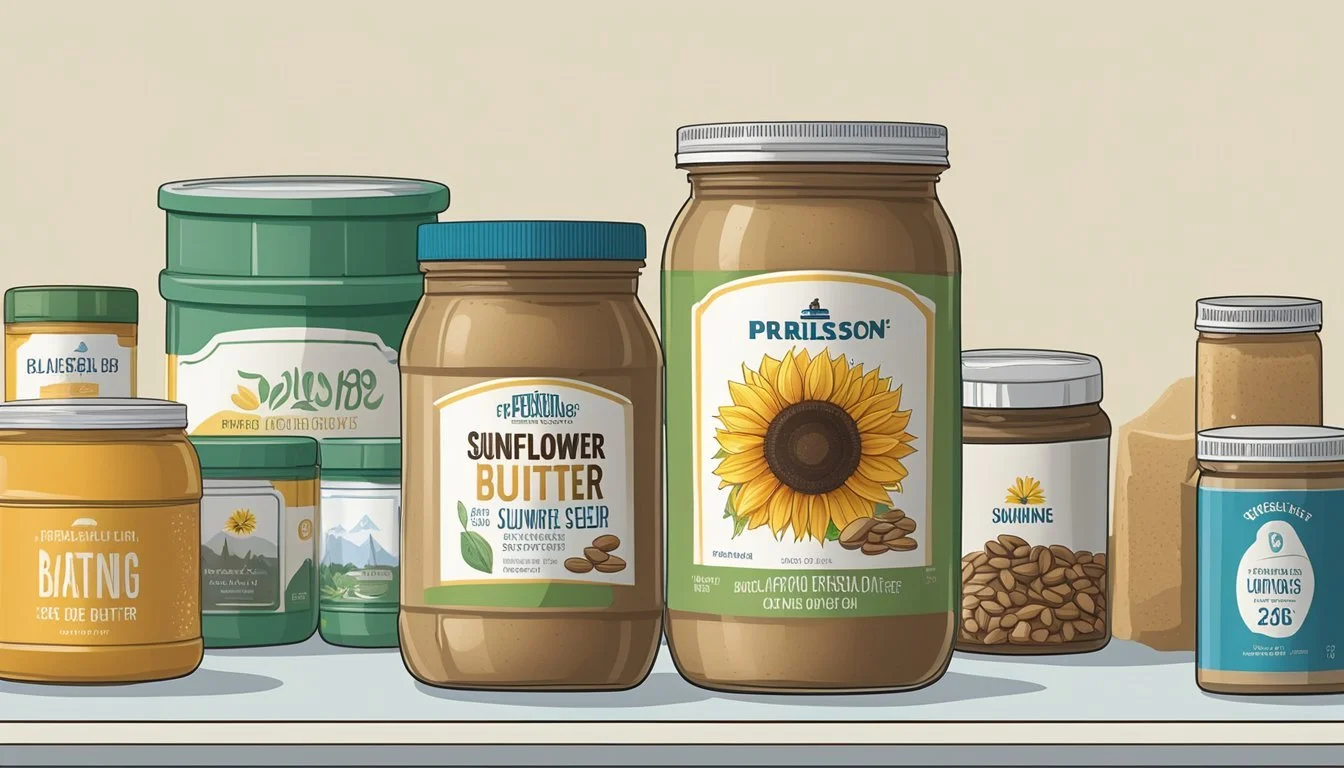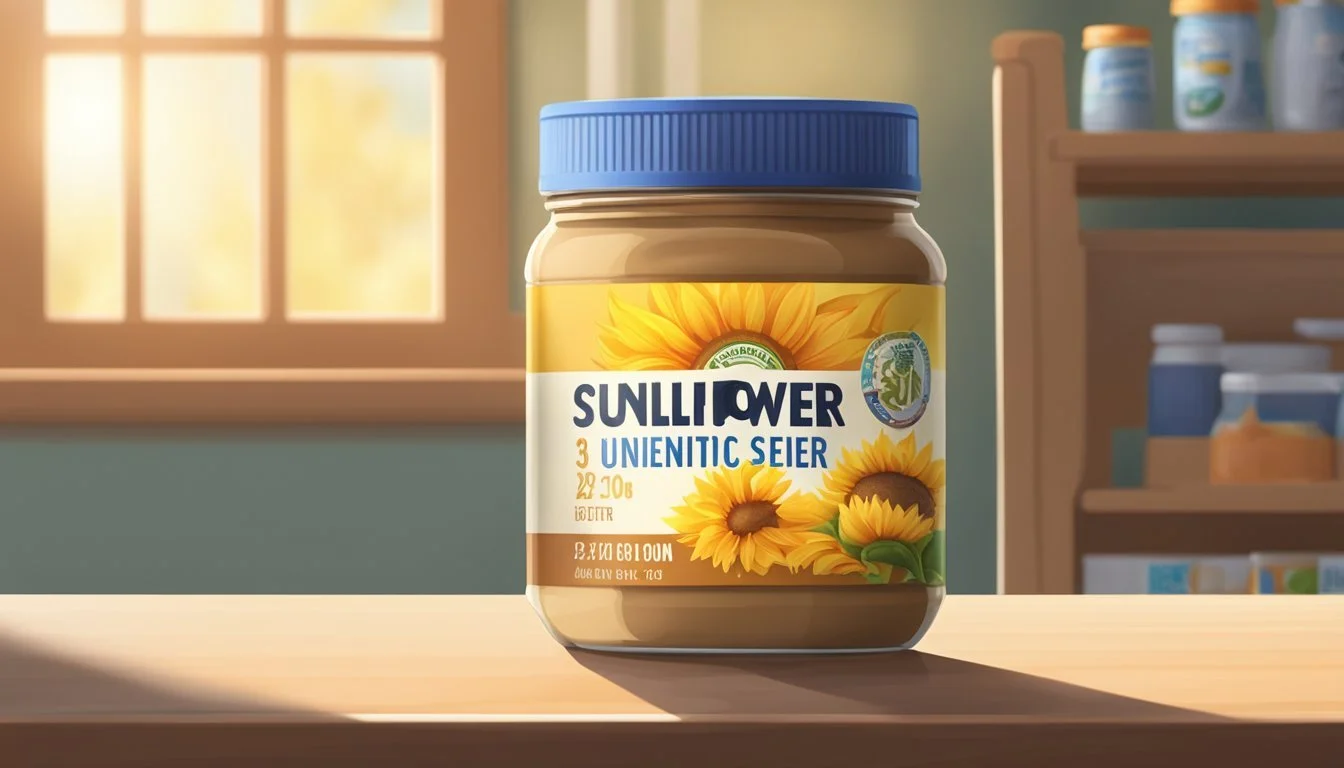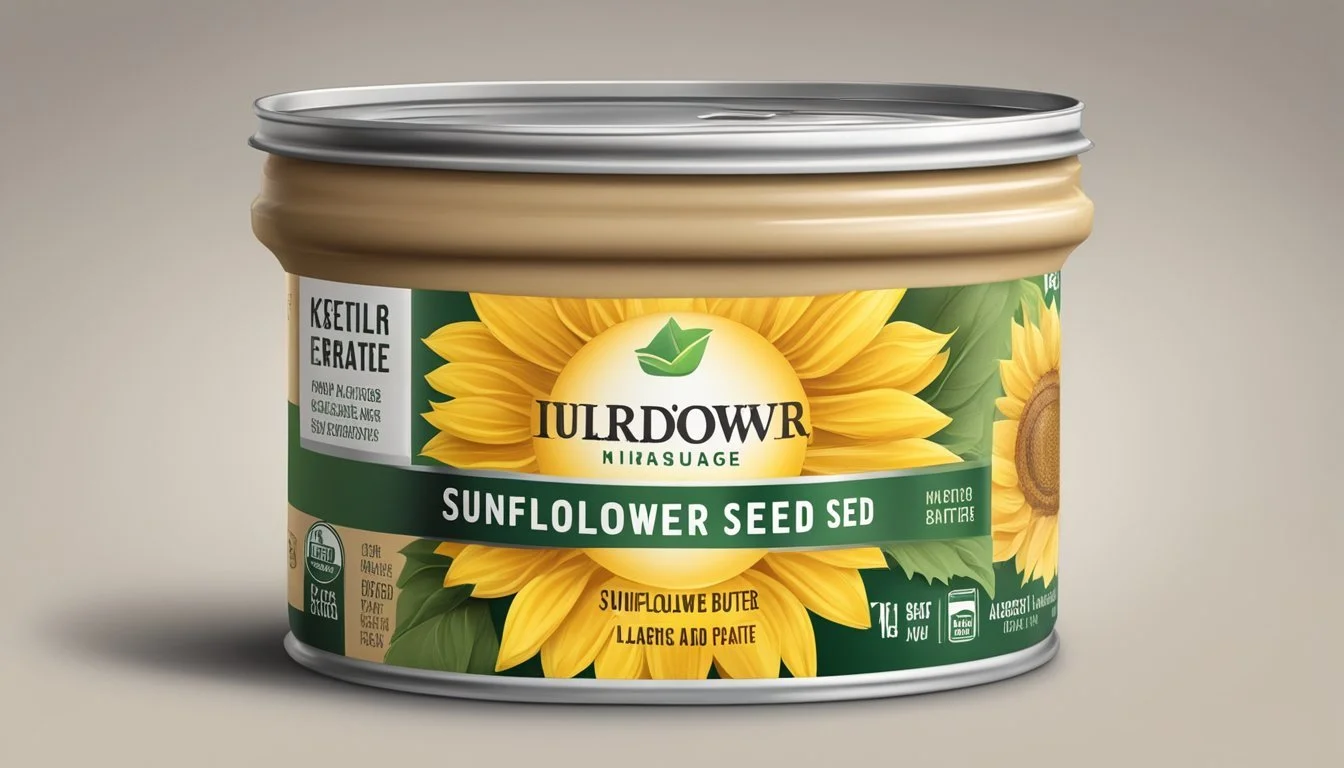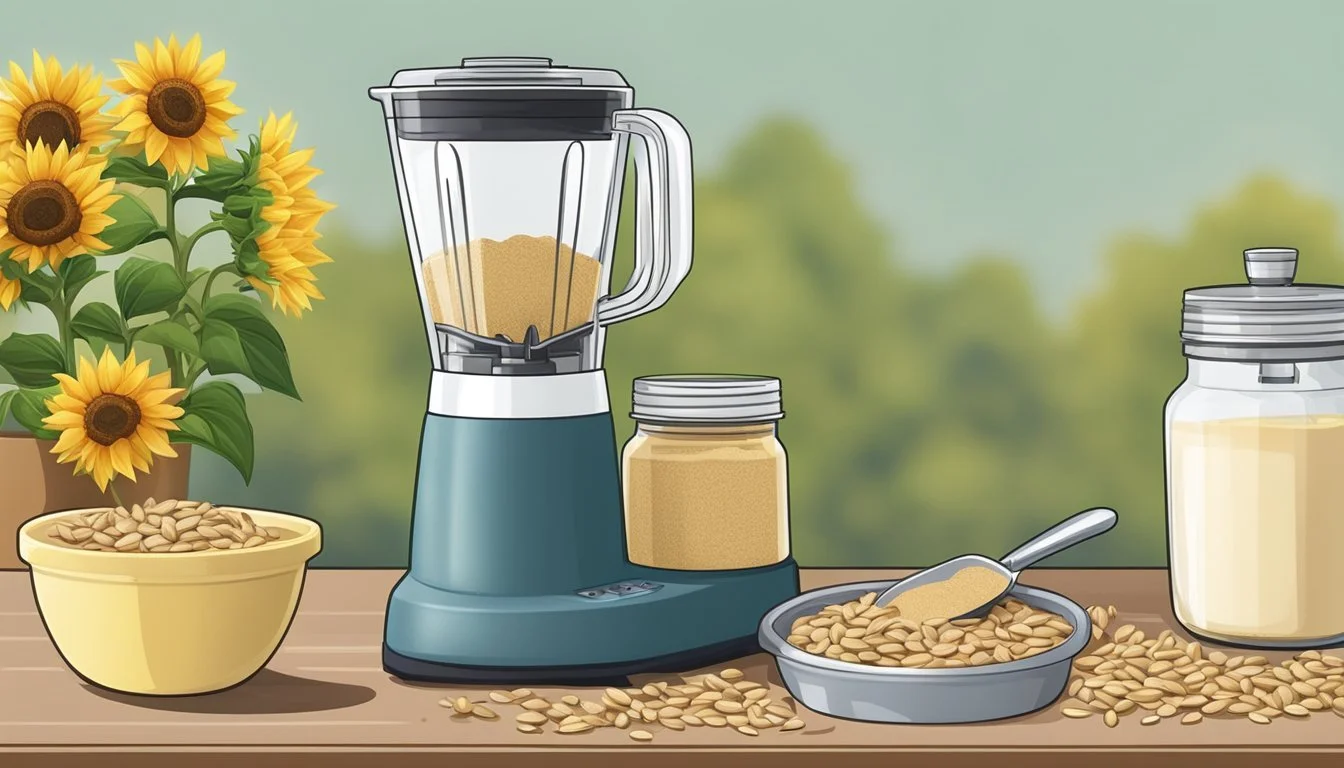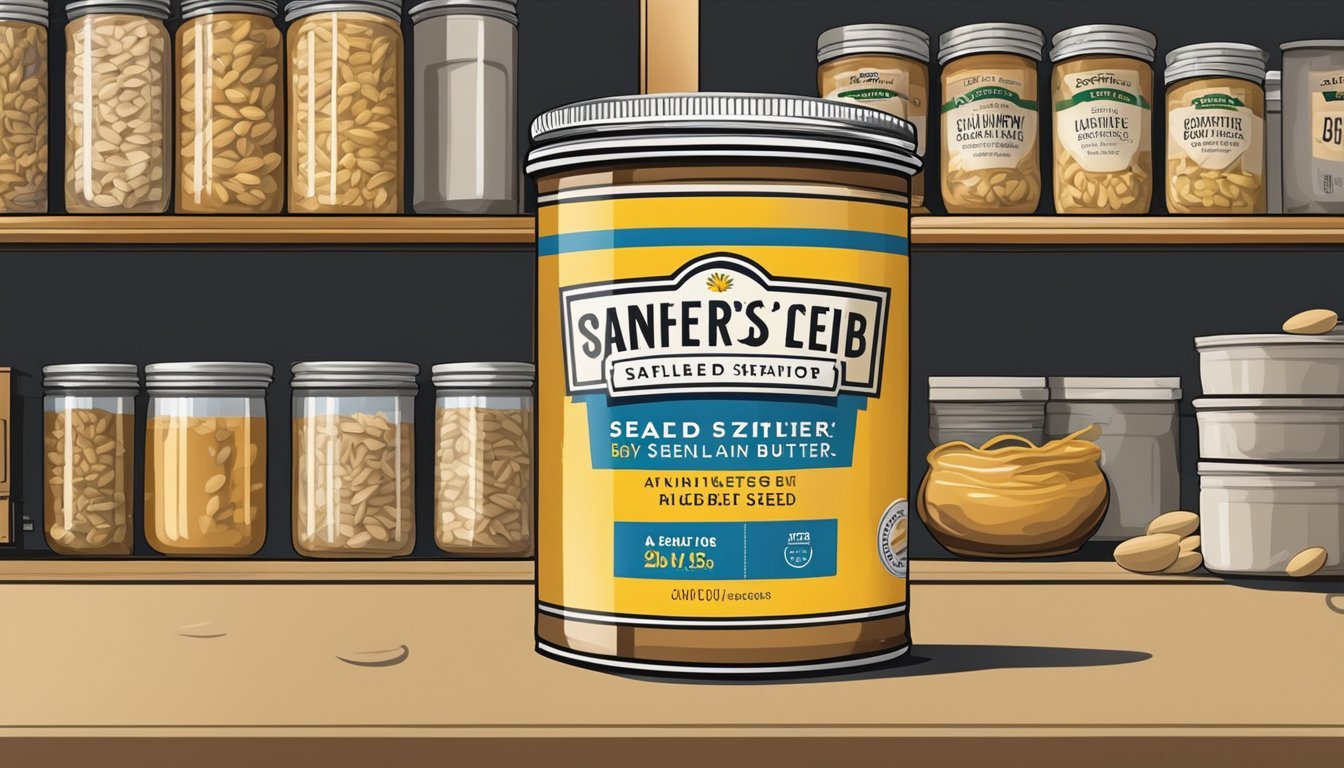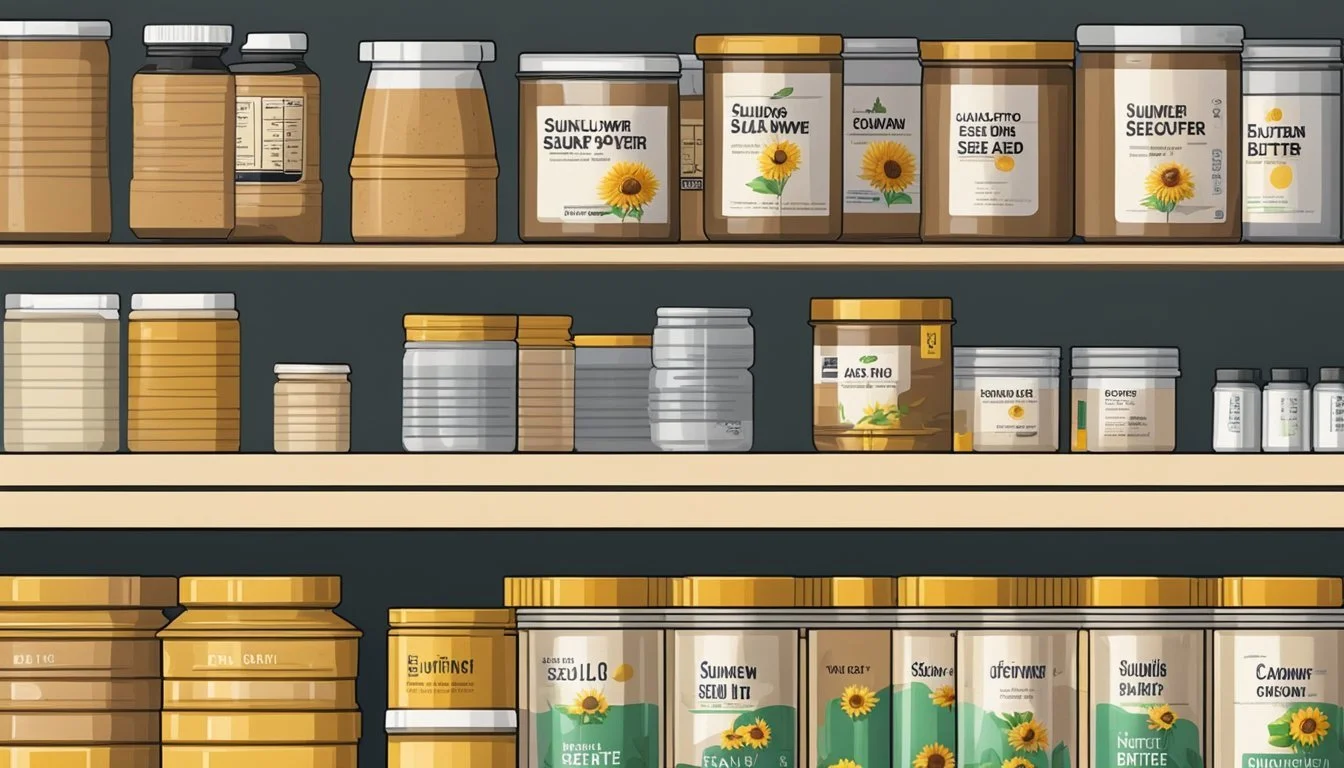How Long Does Canned Sunflower Seed Butter Last?
Shelf Life Explained
Canned sunflower seed butter is a pantry staple for many due to its health benefits and versatility in various recipes. Its popularity rests on its rich nutrients, including unsaturated fats, protein, and vitamin E. However, consumers often wonder about the product's longevity and the best practices for storage to maintain its quality and freshness.
According to manufacturers and the United States Department of Agriculture (USDA), unopened canned sunflower seed butter generally has a shelf life of up to one year from the date of manufacture. This extended shelf life is due to the canning process, which seals the product in an airtight environment, preserving its freshness. Once opened, the shelf life decreases significantly, and the butter is expected to last approximately 1 to 2 months.
To ensure the quality of sunflower seed butter, storing it in a cool, dark place is key. Upon opening, refrigeration becomes necessary to prevent rancidity and spoilage. Consumers should pay attention to changes in texture, color, or smell, which can indicate that the butter has gone past its prime and may not be suitable for consumption.
Understanding Sunflower Seed Butter
Sunflower seed butter has gained popularity as a nutritious alternative for individuals with nut allergies. It is valued for its healthy fat content and allergy-friendly properties.
Nutritional Profile
Sunflower seed butter is a rich source of nutrients including protein, fiber, and healthy fats. A single tablespoon contains approximately 99 calories, 8.8 grams of fat, predominantly unsaturated, which includes both polyunsaturated and monounsaturated fats. It is also a good source of vitamins and minerals such as vitamin E, magnesium, phosphorus, selenium, and iron.
Vitamin E acts as an antioxidant, helping to protect cells from the damage caused by free radicals. The fiber content in sunflower seed butter aids in digestion, and its protein content is essential for muscle repair and growth.
Nutrient Amount per tablespoon Calories 99 kcal Fat 8.8g Carbohydrates 3.7g Protein 2.8g Fiber Not specified
Comparison to Other Nut Butters
Compared to peanut butter and almond butter, sunflower seed butter offers a unique advantage for those with tree nut allergies. It provides a similar texture and nutritional value without the allergens present in tree nuts.
While peanut butter contains more saturated fat, sunflower seed butter has higher levels of unsaturated fats, making it a heart-healthy option. Moreover, sunflower seed butter has a comparable caloric and protein content to other nut butters, making it an ideal alternative to peanut butter for those seeking to manage allergies or simply diversify their diet.
Almond Butter: Rich in monounsaturated fats, vitamin E, fiber; lower in protein.
Peanut Butter: Higher in protein; contains more saturated fats; potential allergen for some.
Sunflower Seed Butter: High in unsaturated fats, nutrient-rich, free of nut allergens.
Sunflower seed butter is not only a versatile spread but also a valuable ingredient in homemade recipes, offering a nutritious boost and catering to the dietary needs of individuals avoiding tree nuts and peanuts due to allergies.
Shelf Life Determinants
Sunflower seed butter's shelf life is influenced by various factors related to its packaging and the environment in which it is stored. Proper attention to these aspects can maximize both the product's freshness and its safe consumption period.
Packaging and Preservation
Sunflower seed butter is typically sold in an airtight container, often a glass jar or similar packaging, to preserve freshness and prevent spoilage. The presence of preservatives in the product can extend its shelf life by inhibiting bacterial growth. Unopened containers of sunflower seed butter can generally last between 6 to 12 months due to these protective measures.
Unopened: 6-12 months
Presence of Preservatives: Extends shelf life
It is important to note the expiration date as it is indicative of the manufacturer's estimation of peak quality. Consuming the product before this date ensures optimal taste and safety.
Storage Environment
Once opened, the lifespan of sunflower seed butter depends heavily on the storage environment. To maintain freshness and prevent the butter from becoming spoiled, it should be stored in a refrigerator. Refrigeration can extend the shelf life from 3 to 5 months.
Refrigerator storage (Opened): 3-5 months
Room Temperature (Opened): Risks faster spoilage
If the butter is kept in a pantry or at room temperature, one should be vigilant for signs of spoilage, such as a sour smell or a change in texture, and it should be consumed in a shorter period. Furthermore, the storage area should be a cool, dry place away from direct sunlight to prevent the accelerated degradation of the product.
Proper Storage Techniques
Proper storage of canned sunflower seed butter is crucial to maintaining its freshness and flavor. The lifespan of the product varies significantly depending on whether the jar is opened or remains sealed.
Unopened Jars
Unopened jars of sunflower seed butter should be stored in a cool, dry place such as a pantry or cupboard, away from direct sunlight and heat sources. This environment prevents the seed butter from becoming too warm, which can cause the oils to separate and spoil more rapidly. When stored properly, unopened jars can remain fresh for 6-12 months at room temperature.
Opened Jars
Once a jar of sunflower seed butter is opened, it’s important to keep it in an airtight container to minimize exposure to air and moisture, which can accelerate spoilage. Opened jars should be stored in the refrigerator; this keeps the seed butter fresh for 3-5 months. Users must ensure the lid is sealed tightly after each use. If the sunflower seed butter separates, it's normal - simply stir before spreading it on toast or including it in recipes.
Signs of Spoilage
When it comes to canned sunflower seed butter, recognizing the signs of spoilage is crucial for avoiding food poisoning. These indications can manifest through changes in smell and odor, texture and taste, and appearance. The consumer is advised to look for these alterations to determine whether the sunflower seed butter has gone bad.
Smell and Odor
A fresh can of sunflower seed butter typically has a nutty and slightly sweet aroma. If the product develops a rancid smell or any offensive odor, it has likely spoiled. Rancid odors are generally strong and unpleasant, indicating the presence of spoilage.
Texture and Taste
Healthy sunflower seed butter should be creamy and consistent in texture, with a flavor that's nutty and rich. When it tastes sour or bitter, it's a sign that the fats have begun to break down, making it unsuitable for consumption. If the sunflower seed butter separates excessively upon stirring, beyond what's normal for naturally separating products, this could also point to spoilage.
Appearance
Visual inspection can reveal several signs that the canned sunflower seed butter should be discarded. Look for visible mold, often presenting as green spots, and any discoloration from the original product color. In addition, a significant deviation from the original texture, such as a dried-out surface or watery separation, indicates that the product may no longer be safe to eat.
Sunflower Seed Butter Uses
Sunflower seed butter offers a versatile range of uses in the kitchen, from being a staple spread for breakfast to a key ingredient in various recipes. It stands as a nutritious alternative to other spreads, rich in healthy fats and vitamin E.
Culinary Applications
Sunflower seed butter can be relished as a spread on toast, adding a nutty flavor and a creamy texture to one’s breakfast. Its usability extends to baking, where it serves as a key ingredient in cookies and cakes, imparting a distinctive taste and contributing to the moisture content of the desserts. Crafting smoothies with a spoonful of this butter boosts the nutritional value, incorporating essential nutrients like protein and healthy fats into a delicious drink.
For a whimsical yet tasteful dessert topping, sunflower seed butter can be lightly drizzled over ice cream. It is also used to elevate savory dishes, such as whisking it into soups or sauces to add depth and creaminess. As an alternative to peanut butter, it caters to those with peanut allergies, ensuring that no one misses out on the joy of nutty spreads.
Healthy Alternatives
Individuals seeking healthy fats and a heart-healthy diet might choose sunflower seed butter for its high content of unsaturated fats. It provides a substantial amount of vitamin E, which supports heart health and acts as an antioxidant. When used as a substitute for less nutritious spreads, sunflower seed butter contributes to a balanced diet without compromising on taste.
For those who are health-conscious but still enjoy the rich, satisfying flavor of traditional spreads, sunflower seed butter stands as a commendable alternative. Its composition supports well-being, all the while maintaining the capacity to enrich a plethora of recipes spanning from breakfast to dessert options. Whether it is incorporated in roasting vegetables or as a spread in a hearty sandwich, sunflower seed butter remains a favored choice for its health benefits and culinary versatility.
Making Homemade Sunflower Seed Butter
Creating homemade sunflower seed butter is a simple way to enjoy a fresh, natural spread. One can control the quality of ingredients and customize the flavor to their liking.
Ingredients and Preparation
Ingredients:
2 cups of shelled sunflower seeds
1 to 2 tablespoons of oil (optional, for creaminess)
Salt, to taste (optional)
Sweetener such as sugar or honey (optional)
Preparation:
Preheat your oven to 350°F (175°C). Spread the sunflower seeds on a baking sheet and roast them for 12-15 minutes until golden and fragrant. Stir the seeds halfway through to ensure even toasting.
Let the roasted sunflower seeds cool for 10-15 minutes.
Transfer the seeds to a food processor. Process for several minutes until a paste forms, scraping down the sides as needed.
If desired, add oil, a pinch of salt, and sweetener while blending until reaching the preferred consistency and taste.
The resulting butter should be creamy and spreadable.
Storage and Shelf Life
To maintain freshness, homemade sunflower seed butter should be stored in an airtight container. Placing it in the refrigerator can significantly extend its shelf life.
Shelf Life:
Refrigerated: Up to 3 months
Room Temperature: Generally up to 2 weeks, although it's best to taste and check regularly for any signs of spoilage due to the natural oils.
Remember, homemade sunflower seed butter lacks preservatives found in store-bought versions, so it's essential to store it properly to enjoy its natural flavor for as long as possible.
Health and Safety Considerations
When considering the health and safety of canned sunflower seed butter, it is important to assess its nutritional content, potential allergenic properties, and susceptibility to foodborne concerns.
Nutritional Benefits
Sunflower seed butter is a nutrient-dense spread offering significant health benefits. It contains protein, essential for muscle repair and growth, and it's high in fiber, which aids in digestion. The butter is also packed with healthy fats, including linoleic acid, which contribute to heart health. In terms of vitamins and minerals, sunflower seed butter offers vitamin E, an important antioxidant that protects cells against oxidative stress, as well as minerals like magnesium, known for supporting bone health, and selenium, which plays a role in preventing cell damage.
Calories: Moderate, energy-providing
Protein: Approximately 2.8g per tablespoon
Fiber: Aids in healthy digestion
Healthy Fats: Supports cardiovascular health
Antioxidants: Includes Vitamin E
Minerals: Such as magnesium and iron
Allergies and Sensitivities
Canned sunflower seed butter is often chosen as an alternative to peanut or tree nut butters due to allergies. While it's generally safe for individuals with tree nut allergies, cross-contamination is possible during manufacturing. Therefore, checking labels for allergen information is crucial. Also, some individuals may have sensitivities or allergies to sunflower seeds themselves; they must be vigilant about reading food labels to avoid allergic reactions.
Tree Nut Allergy Safe: Typically a good alternative
Cross-contamination: Check manufacturing practices
Sunflower Seed Allergies: Though rare, always read labels
Foodborne Concerns
Canned sunflower seed butter has a long shelf life but must be stored properly to reduce the risk of food poisoning. Once opened, it should be refrigerated and consumed within a reasonable time frame to minimize the growth of bacteria. The USDA recommends ensuring no signs of spoilage, such as unusual odors, colors, or textures, which could indicate the presence of foodborne illnesses.
Storage: Refrigerate after opening
Shelf Life: Several months to a year unopened
Spoilage Signs: Odor, color, or texture changes
Sunflower seed butter should be consumed before the ‘best by’ date for optimal safety and quality.
Regulatory and Quality Standards
When it comes to the longevity and safety of canned sunflower seed butter, regulatory and quality standards play a crucial role. These guidelines ensure product consistency and consumer trust.
USDA Guidelines
The United States Department of Agriculture (USDA) enforces specific regulations that manufacturers must adhere to when producing canned sunflower seed butter. These regulations include:
Standards: The sunflower seeds utilized in the butter must meet minimum quality standards. According to the USDA's Agricultural Marketing Service, the sunflower seeds should be graded U.S. No. 2 or better.
Expiration Date: While the USDA doesn't set specific expiration dates, manufacturers are required to establish product shelf life in accordance with general food safety practices.
Labeling: Labels must accurately reflect the contents and quality of the sunflower seed butter. This includes indicating the grade of sunflower seeds used as well as adhering to labeling regulations which ensure consumers are informed about what they are purchasing.
These regulations are designed to ensure that canned sunflower seed butter meets the expected safety and quality benchmarks before it reaches the consumer. The standards and labeling serve as a guarantee of the product's integrity from production to purchase.
Frequently Asked Questions
In this section, readers will find detailed answers regarding the storage and shelf life of canned sunflower seed butter in comparison with peanut butter, the influence of oil quality, and the preservation of homemade varieties.
Sunflower Seed Butter vs. Peanut Butter
Sunflower seed butter serves as an alternative to peanut butter for those with allergies or different dietary preferences. Peanut butter and sunflower seed butter have similar storage timelines, usually lasting about 1-2 months once opened. However, unopened sunflower seed butter can have a shelf life of up to one year. Both types remain safe to eat longer when refrigerated or frozen, typically extending their freshness.
Impact of Sunflower Oil Quality
The quality of the sunflower oil used in the butter can significantly impact its shelf life. High-quality oils with natural antioxidants may retain freshness longer, reducing the risk of rancidity. Sunflower seed butter can expire or deteriorate quicker if the oils start to degrade, thereby shortening its duration of being considered safe to eat.
Homemade Butter Shelf Life
Homemade sunflower seed butter's shelf life is generally shorter than its commercial counterpart. This is due to the absence of preservatives. Refrigeration is advised for homemade butter, where it can stay fresh for 2-3 weeks. For best quality, consuming homemade sunflower seed butter within a shorter duration ensures it remains safe to eat.

